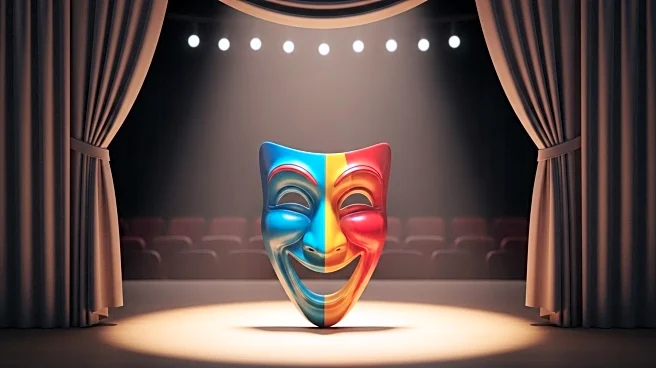What's Happening?
The Riyadh Comedy Festival, held from September 26 to October 9, 2025, has sparked significant controversy due to ethical concerns surrounding its lineup of over 50 international comedians. The festival, which took place in Saudi Arabia, has been criticized for involving artists in a country with a contentious human rights record. The controversy intensified when comedian Louis C.K. described the festival as a 'good opportunity' during an appearance on Real Time With Bill Maher. This comment, along with leaked censorship terms, has led to a broader debate about the ethics of performing in autocratic regimes. One performer has already issued a public apology and pledged to donate their fee in response to the backlash.
Why It's Important?
The controversy surrounding the Riyadh Comedy Festival highlights the ongoing debate about the role of cultural exchange in politically sensitive regions. For comedians and festival organizers, the decision to participate in such events can be seen as either a form of cultural diplomacy or as complicity in normalizing repressive regimes. The backlash has prompted discussions within the comedy industry about where to draw ethical lines, with some arguing that performing can open civic spaces, while others see it as whitewashing human rights abuses. This situation underscores the complex interplay between commercial interests, artistic freedom, and ethical considerations in the entertainment industry.
What's Next?
In the wake of the controversy, festival organizers, agents, and venues may face increased scrutiny regarding their vetting processes and contractual agreements. Social media pressure and public opinion could influence future decisions about participation in similar events. The industry may see a shift in how audiences and stakeholders perceive the ethics of cultural exchange, potentially affecting the commercial viability of such festivals. The ongoing debate may lead to more artists refusing to perform in countries with questionable human rights records, while others may continue to see it as an opportunity for cultural engagement.
Beyond the Headlines
The Riyadh Comedy Festival controversy raises broader questions about the responsibilities of artists and entertainers in global contexts. It challenges the industry to consider the long-term implications of cultural exchanges and the potential for art to either challenge or reinforce existing power structures. The situation also highlights the role of public opinion and media coverage in shaping the ethical standards of the entertainment industry, as well as the potential for artists to influence social and political discourse through their choices.









